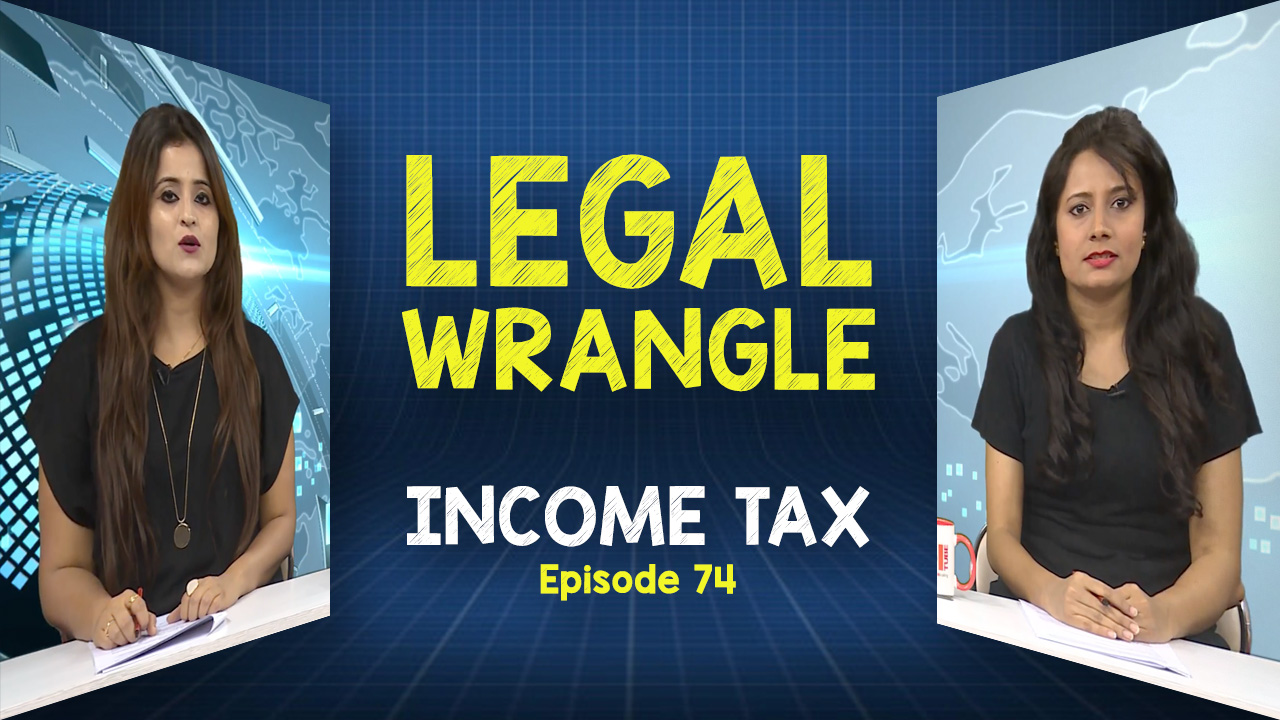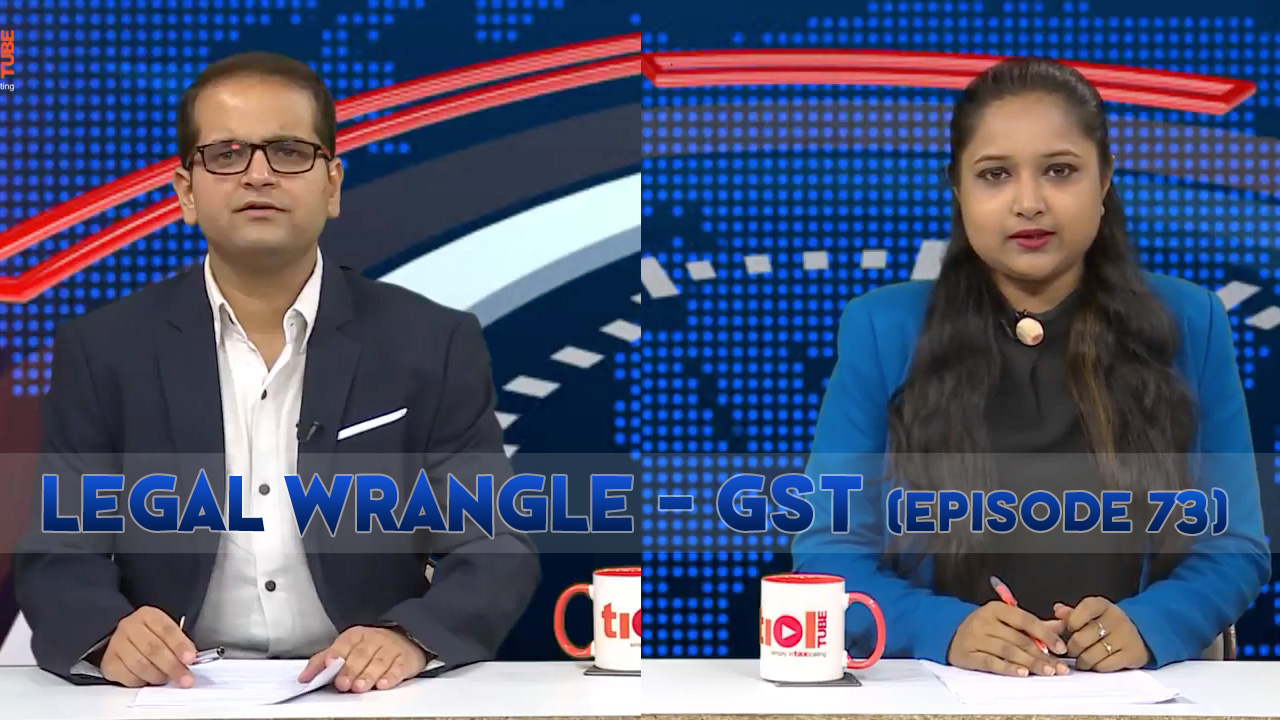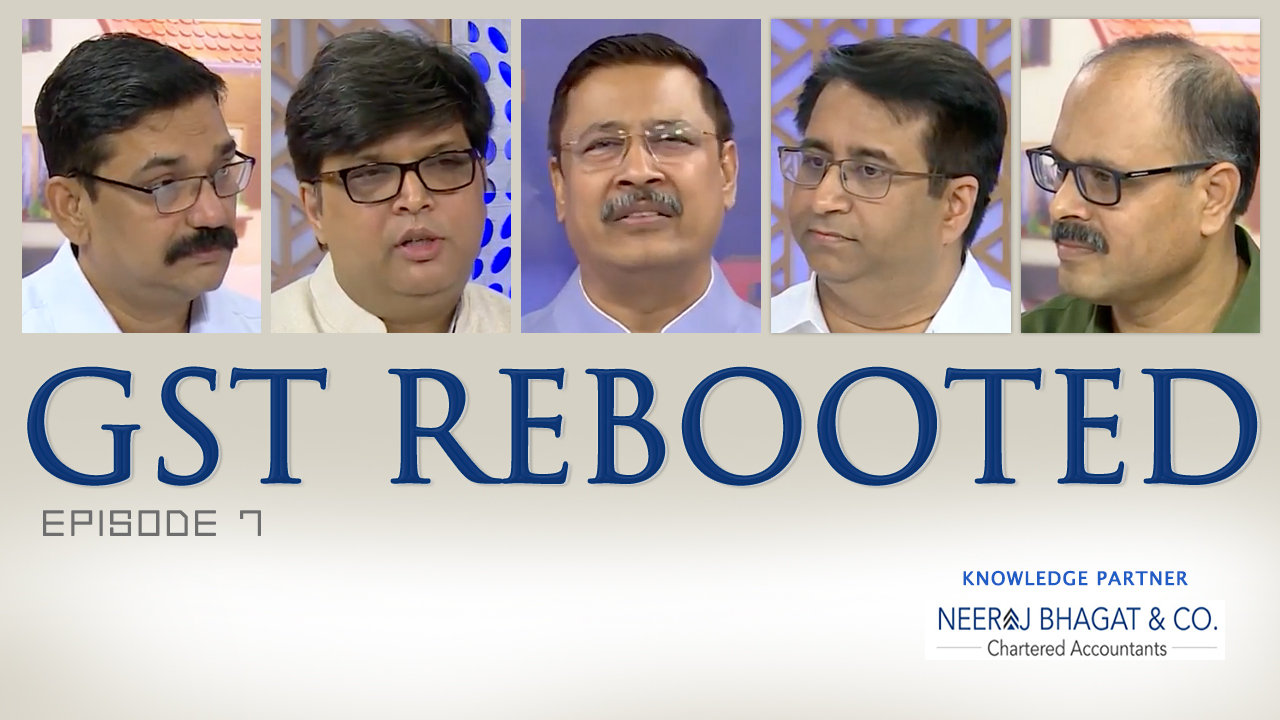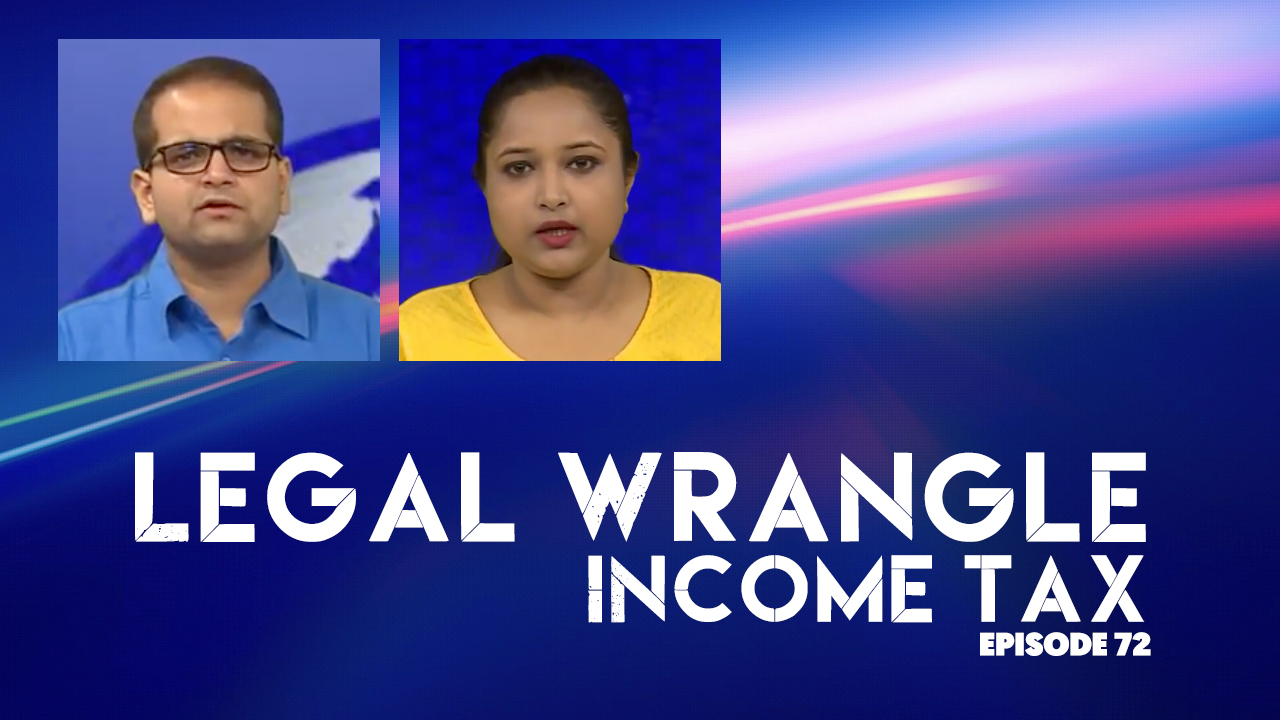SERVICE TAX
2018-TIOL-1594-CESTAT-MUM + Case Story
Sahara India Commercial Corporation Vs CCE
ST - Intellectual Property Service - Appellant and M/s SITV form part of the same company and it is only a division of the appellant - therefore, discharge of service tax liability by M/s SITV on behalf of the appellant does not tantamount to discharging the service tax liability of another company: CESTAT [para 7]
ST - During the relevant period 2007-08 and 2008-09, the tax was payable only when the service provider has received the amount as provided in Rule 6 of Service Tax Rules, 1994 - Since appellant has not raised invoice for the royalty amount on AVL and accordingly has not received the amount, therefore, as per the provisions contained in Rule 6 of Service Tax Rules, 1994, the appellant is not liable to pay service tax on this amount - Impugned order set aside and appeal allowed: CESTAT [para 8, 9] - Appeal allowed : MUMBAI CESTAT
2018-TIOL-1593-CESTAT-DEL
Sitq India Pvt Ltd Vs CST
ST - Assessee is registered with the service tax authority under the taxable category of "Management or Business Consultant Service" (MBCS), "Business Auxiliary Service" (BAS), etc- Assessee sought refund of cenvat credit lying un-utilized on the ground that they have used input services in providing the output service namely, "Management or Business Consultant Service" (MBCS) which were exported outside the country to their overseas clients-Department took a view that the Assessee was engaged in rendering the service under the category of "Real Estate Advisory Service" (REAS) as they rendered the service in respect of the properties situated in India and therefore, the services cannot be treated as export of service.
Held- The Tribunal framed two issues, one of them related to the activities of the Assessee coming within the purview of MBCS and BAS or REAS and the other being Assesee's entitlement to get refund under Rules 5 of the Cenvat Rules, 2004 read with Export of Services Rules, 2005 - Upon considering the definitions of REAS and MBCS as well as reading the scope of the agreement betweenthe parties-The definition of MBCS includes the service of any person, who renders any advice, consultancy or technical assistance in relation to financial management-The investment as mentioned in the agreement would be only in the shares of the company and the company is separated from its shareholders-By investing in a company in real estate sector, the investor does not acquire or purchase the real estate property itselfy of MBCS-Therefore, the Tribunal held that Asseessee rendered the services to the overseas clients as advisors of the investment opportunities in Indian company, which is clearly covered within the definition of MBCS- Relied on AMP capital Advisors Indian Pvt. Ltd. Vs. CST, Mumba i- The Assessees is entitled to refund: CESTAT (para 2,7, 8,9) - Appeal Allowed : DELHI CESTAT
2018-TIOL-1592-CESTAT-CHD
Maruti Suzuki India Ltd Vs CCE
ST - Assessee entered into an agreement with M/s Suzuki Motor Corporation (SMC), Japan for manufacture of engines and transmission part of two wheeler and four wheeler for India - As per said agreement, M/s SMC, Japan provided plant and observation and training and assessee will reimburse the expenses incurred thereon - It was also observed that assessee made re-imbursement of expenses to M/s SMC, Japan in foreign currency on account of organizing, training and seminars but did not pay service tax thereon in terms of Rule 2(I)(d)(iv) of STR, 1994 - It was also observed that assessee received IPR services from foreign based related/associated person and deposited service tax on 27.07.2009 along with interest treating due date of deposit is 31.03.2009 against actual due date on 05.06.2008 which resulted in short payment of interest - Therefore, service tax and demand of interest on short payment of interest were sought to be recovered by issuance of SCNs - The service in question has not been disputed by both the sides i.e. in-house training at M/s SMC, Japan of employees of assessee and assessee has reimburse the expenses of said training that the activity sought to be taxed under category of Scientific Technical Consultancy Services - M/s SMC, Japan has not provided any advice consultancy, scientific or technical assistance to the assessee - Moreover, M/s SMC Japan is not scientist or technocrat or Science technology institution/organization in disciplines of science or technology - Therefore, for in-house training M/s SMC, Japan does not covered under Scientific and Technical Consultancy Service in terms of Section 65 (95a) of FA, 1994, therefore, assessee is not liable to pay service tax under said category - Accordingly, demands confirmed against assessee on that account is set aside.
During impugned period, assessee was required to pay service tax on receipt of payment of service provided and not from the date of service provided - Same view was taken by High Court of Delhi in case of MC Donalds India Pvt. Ltd. 2017-TIOL-2157-HC-DEL-ST and assessee has paid service tax on the receipt of payment for service provided by them or services received under reverse charge mechanism - Assessee is not liable to pay interest for intervening period i.e. date of service provided till its realization: CESTAT - Appeals allowed : CHANDIGARH CESTAT
CENTRAL EXCISE
2018-TIOL-952-HC-RAJ-CX
CCE Vs Nirmal Inductomelts Pvt Ltd
CX - The Assessee engaged in manufacturing of Engineering Machines for which the main raw materials were M.S. plates, rounds, and bearings - M.S. Plates of thickness more than 20 mm were being used for manufacture of Engineering Machines - On some occasions they had used M.S. Plates of thickness 16mm to 18mm but the percentage of such usage of M.S. Plates of thickness 16mm to 18mm was very rare - They had never used M.S. Plates below 16mm - The Assessee had availed the Cenvat credit of duty shown to have paid in the said invoices as Excise duty - Revenue disallowed the credit - On appeal, the Tribunal allowed the Cenvat credit paid by the Assessee - In this case there was ambiguity in the statement of employee - The issue at hand is whether the Assessee has a right to cross examine the witness (employees) & not only on the basis of the owner of the firm - Further, whether in the absence of opportunity to cross examine, the order against the Assessee would be improper and illegal.
Held - Considering the decision in Shree Parvati Metal, V/s Union of India & Ors. an identical issue was decided in favour of the Assessee - It was held that the issue is not solely to be decided on the basis of owner statement without thoroughly considering the corroborative piece of evidence which may be available - Following the same, the Revenue's appeal is dismissed : HC (Para 2, 13, 15) - Revenue's appeal dismissed : RAJASTHAN HIGH COURT
2018-TIOL-1600-CESTAT-MUM + Case Story
Deepak Fertilizers and Petrochemicals Corporation Ltd Vs CCE
CX - CENVAT credit was sought to be denied only on the ground that 'servicing charge' having been done away with, it was no longer a component of the price of input and, hence, outside the ambit of rule 3 of CCR, 2004 - It is settled law that the authorities conferred with jurisdiction over the recipient is not competent to re-determine the tax liability suffered on the input at the supply end - impugned order set aside and appeal allowed: CESTAT [para 5] - Appeal allowed
: MUMBAI CESTAT
2018-TIOL-1591-CESTAT-MUM
Apple Sponge and Power Ltd Vs CST
CX - Penalty u/r 26 of CER was imposed on the ground that the appellant had received invoices from M/s AmbeVaishno Steels Pvt. Ltd. without receipt of any inputs alleged to have been covered thereunder - appeal to CESTAT.
Held: Under sub-rule (1) of rule 26, penalty is imposable on the person who deals with the goods which is liable for confiscation - since in the present case, it is the case of the department that the appellant has not received the input, therefore, there is no question of dealing with the goods and accordingly, penalty under sub-rule (1) of rule 16 is not imposable - so also, as regards sub-rule (2) of rule 26, the said sub-rule is applicable on the person who issues the invoice without supplying the inputs for fraudulent passing of CENVAT credit - appellant also does not fall under the category of the person mentioned in sub-rule (2) - as the invoice was issued by M/s AmbeVaishno Steels Pvt. Ltd., therefore, if at all penalty is imposable, it is on M/s AmbeVaishno Steels Pvt. Ltd. and not on the appellant - Moreover, penalty u/r 26 of CER can be imposed only on the natural individual person and not on the artificial person or company because the goods is handled by natural living person and not by an artificial entity, therefore, on both counts, penalty u/r 26 is not imposable - appeal is allowed: CESTAT [para 4, 5] - Appeal allowed : MUMBAI CESTAT
2018-TIOL-1590-CESTAT-DEL
Chemical and Minerals Industries Pvt Ltd Vs CCE
CX - Assessee is engaged in the manufacture of precipitate, activated & natural calcium carbonate, hydrated lime, quick lime, talc powder and other chemicals falling under Chapter Heading no. 283650 of the First Schedule to the CETA 1985- Assessee had placed windmills away from factory and electricity generated at the two windmills were withdrawn and used for production of dutiable goods at the factory- Assessee utilized Cenvat credit in respect of operation/maintenance/ repair & maintenance/Insurance charges - Revenue took the view that the electricity generated by Windmill, in question, was injected into the power grid of the State Electricity Board with charge basis and Assessee was not using electricity for the manufacture of the final product in the factory - There was no relation with the manufacture of dutiable goods in the factory with the electricity generated at their Windmill-Revenue disallowed CENVAT credit on the ground that operation, maintenance, repair and insurance charges of windmill installed out side the factory premises is not input service - However, the Commr (Appeals) allowed the credit-Hence, Revenue's appeal -
Held - The Tribunal relied on findings mentioned in O-I-A and observed that Assessee was drawing the power in exchange at their factory in lieu of the power injected in the grid which was located at a distance and they were required to pay only the wheeling/grid charges- Assessee was indirectly receiving power in their factory which is one of the factors of production, without which they cannot manufacture their dutiable outputs-Relied on Parry Electronics and Engg. Pvt Ltd wherein it has been held that in case of Windmills located away from the factory and electricity generated is surrendered to the grid and the same is withdrawn in the factory from the grid, Cenvat credit is available for the services received and used at the windmills located away from the factory: CESTAT (para 1, 2,3,8) - Appeal Allowed : DELHI CESTAT
CUSTOMS
2018-TIOL-951-HC-MUM-CUS
Mina of India Vs UoI
Cus - The Assessee is engaged in the business for using lining material in hand bags, brief cases & jewellery boxes - The import of goods & fabric was restricted as per the provisions of Import Export Policy 1985-88 - The Central Government had framed a policy of encouraging the export of leather goods, according to which, exporters of leather goods were entitled to obtain import licenses for replenishment of input requirements for export products i.e. leather goods - The Assessee placed an order with a foreign supplier, in Korea for total import of lining material - On arrival of the goods at the port and an order for first check examination of the goods was passed to ascertain the description and nature of the goods and to forward a sample of the goods for analytical test - On inspection of the goods imported it was found that they were "Nylon Flocked Member Tricot Fabrics" - In the invoices, the goods were declared as Art Solk Fur cloth - Further, there were certain discrepancies in the net weight and length of the goods imported - The exercise of inspection & examination took place with the knowledge of the Assessee - The Department opined that the modus operandi of the Assessee was to illegally import high quality fabric to be used in garment industry and divert them in the local market to reap huge profit at the cost of Government exchequer.
Held - The conclusion reached by the Revenue on inspection, examination and test of the imported material wherein serious discrepancies were noted, is factual in nature - Hence it is not a fit case for interference in writ jurisdiction: HC (Para 2, 5, 6) - Writ Petition Dismissed : BOMBAY HIGH COURT
2018-TIOL-950-HC-AHM-CUS
Rubamin Ltd Vs Pr.CC
Cus - The Assessee imported zinc ash & zinc skimming - The Department opined that Assessee in three separate consignments had imported zinc ash which contained less than 65% of zinc and indulged in import of prohibited goods - The goods were confiscated u/s 111 (d) of the Customs Act, 1962 and duty demand was raised by the Revenue - On appeal, the Assessee challenged the imposition of fine & penalty as well as the sampling method - The Commr.(A) observed that the sampling standards prescribed for zinc concentration could not be applied for the product in question.
Held - It is seen that samples whatever taken showed deficiency in zinc contents - Further, the quantum of product imported was worth crores of rupees and against that the redemption fine and penalty was reasonable: HC - Appeals Dismissed : GUJARAT HIGH COURT |









